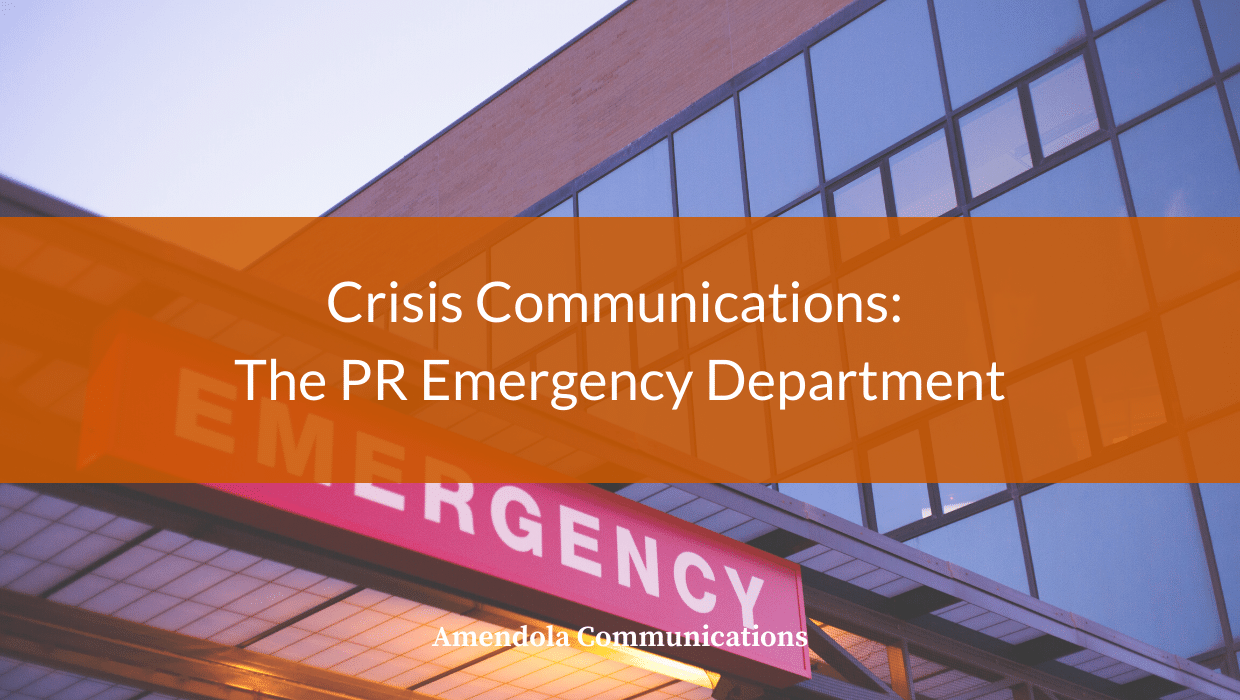You wake up and reach for your phone. Despite the many times you’ve heard it’s not healthy to check your email before your feet even hit the floor in the morning you immediately check your email.
This time, at the top of your inbox, is a message from your biggest client. It came through just after 6 a.m. At the top of the message is the first indication that your day is going to be interesting that good ol’ red “Urgent” exclamation mark.
The subject line reads “CALL ME ASAP.” You accept the fact that starting the coffee machine will have to wait awhile.
If you have been in PR for much time at all, some version of the above scenario has happened to you. The crisis could be any number of things.
In the healthcare industry, it could be a data breach that compromised thousands of electronic health records; a lawsuit; a massive bill from insurance; a disgruntled former employee spreading rumors on social media; or an important piece of medical equipment malfunctioning.
For nearly all enterprise organizations, and a good number of small to midsized business, a good PR firm is the first place they turn in the middle of a crisis. If you have done your job well as an agency, and earned the trust of your client, you are their emergency room in these situations. So you better have your scrubs on and your scalpel ready at all times.
When it comes to crisis communications, nothing is more important than having a solid predetermined plan in place. Before any sort of fire drill ever hits and the alarm starts blaring, the agency and the client should have had several proactive discussions during which they identified scenarios that might damage the brand or cast the company in a negative light. From there, messaging needs to be developed for each of those situations.
Of course, no one can anticipate every possible crisis. But if the most likely ones have been targeted, you can take your base messaging and create draft responses that are ready should one of those scenarios occur.
It likely won’t be the exact situation you planned for, but it will be close enough that you will only need to make tweaks and edits rather than developing your message from scratch in an already stressful situation. Better to hash out these responses over coffee and donuts when everyone is in a good mood, rather than at six in the morning when you haven’t even had the chance to brush your teeth, let alone get some caffeine into your bloodstream.
Once you have the messaging, you have a huge chunk of your prep work done. But it needs to be part of a larger plan that also includes:
A team leader from both the company and the agency
These two will be the main points of contact to keep leadership in the loop and field incoming calls from media to coordinate responses and/or interviews.
A spokesperson
It depends on the severity and level of attention the crisis has caused, but this should almost always be a C-level decision-maker whose name and voice carries the appropriate weight. This is the person who will give interviews and to whose name the statement will be attributed.
Internal communications
It is incredibly important that someone is assigned to internal communication to keep employees posted on the steps being taken during a crisis. There might be information that isn’t appropriate for you to share company-wide, but you need to share at least some details.
If not, staff will begin talking among themselves, to their families, and maybe even posting on social media. They can’t be in the dark.
On top of that, reporters might take some shots in the dark and start randomly reaching out to anyone who works for the company. If your staff hasn’t been told the plan, including that they should forward any media on to the company’s comms team, the problem can spin out of control fast. And once that happens, it’s nearly impossible to course-correct.
It might not be fun to imagine worst-case scenarios. It might even raise your heart rate. But once you do it, and your teams has a nice, neat folder saved on a shared drive somewhere with all the documents and procedures necessary for an organized response to an emergency, you will rest much easier.
You might even be able to pour a cup of coffee before you spend the rest of the day firing off emails and fielding phone calls.
